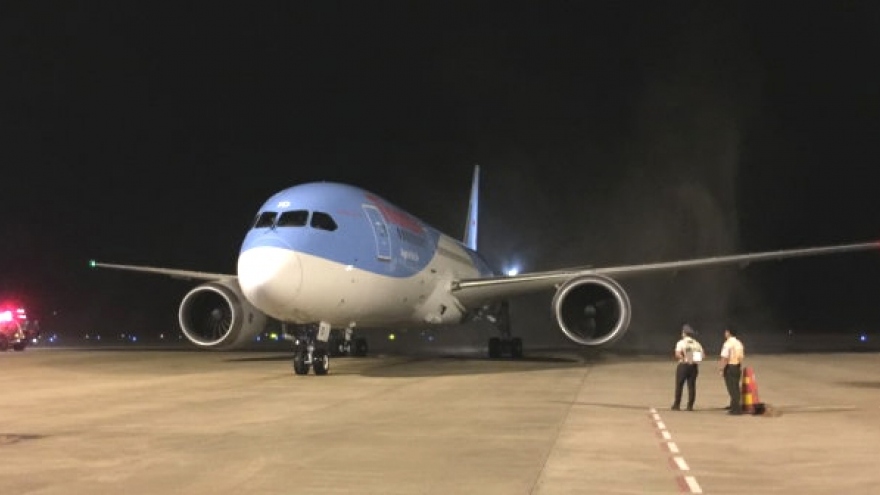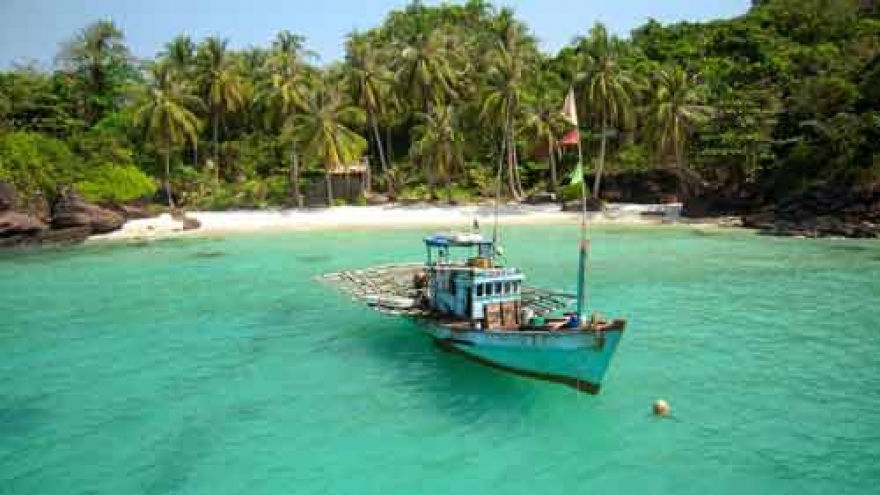Phu Quoc condotels warming up the market
Condotels in Phu Quoc are becoming increasingly attractive to foreign investors because of their location in one of the hottest tourism destinations of Vietnam as well as the prestigious developers behind them.
On March 8, a Boeing 787 of Swiss airline TUI Nordic, packed with Northern European tourists, landed at Phu Quoc International Airport. A representative of the airline said that in the last months of 2016 they are going to have weekly flights to Phu Quoc.
Besides being a popular destination for tourists from Russia, Singapore, Malaysia, and Thailand, Phu Quoc has recently started welcoming visitors from Europe.
In the past year, many foreign airlines have opened routes or increased the frequency of flights to Phu Quoc because the infrastructure serving tourism, especially accommodation, has improved remarkably.
As the island is looking forward to a boom in tourism, now is a unique time to invest in real estate here.
In fact, foreign investors from a variety of countries have already shown great interest. At the beginning of 2016, an event to introduce Sun Group’s hospitality real estates in Singapore attracted representatives from more than 200 real estate companies.
 |
Leong Boon Hoe, managing director of CBRE Singapore, said that three factors making hospitality real estate in Vietnam attractive to Singaporean investors are their competitive prices, good location, and the prestige of the developers.
In Singapore, a three-bedroom condotel is priced between US$500,000 and US$840,000 while a similar condotel in Vietnam only costs about 25% of that.
Sun Group’s condotels are within the resort and close to the seaside. The building density is 30%, while the remaining 70% is reserved for green space and 5-star amenities.
The developer commits a profit of at least 9% per year for nine years, and the owner of the condotel gets 135 nights in their estate or a comparable accommodation for these nine years.
Condotels are also an attractive choice compared to other investment options. If one buys a condo in the city, one remains hard-pressed to think of ways to earn a profit. In case of a condotel, the developer commits a fixed profit.
Sometimes the profit one makes is even higher than the committed rate. It could reach 15% per year or higher if the condotels are managed by internationally renowned hotel companies.
The condotel model is a recent addition to the Vietnamese real estate scene, though enjoying international popularity for a while now. Condotels in Singapore, Boracay in Phillipines, Bali in Indonesia, and Sydney in Australia have proved extremely profitable.
Condotels were hot in Vietnam five years ago, when investors raced to get their hands on condotels from international projects, such as Hyatt Regency and Azura in Danang. At that point, the price was US$4,500 per square metre.
At the end of 2015 condotels made a comeback with Sun Group’s Condotel Premier Residences Phu Quoc Emerald Bay project, and judging by the warm welcome of the market, one can say that condotels have not lost their shine.
With not only Sun Group, but also many real estate companies, such as Vingroup and LDG Group, seeing big opportunities in the condotel segment, investments in the area are poised for a surge in 2016.



